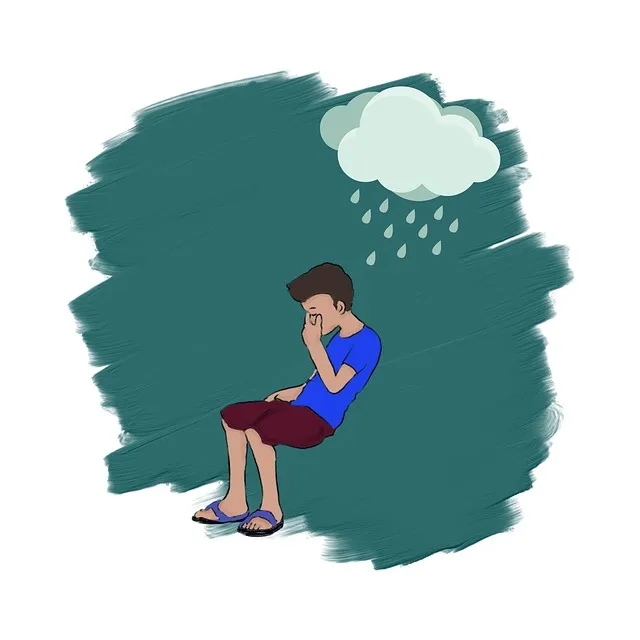Lafayette's Kaiser Inpatient Mental Health program leverages the RFM framework (Resilience, Flexibility, Mastery) to offer comprehensive care. This approach prevents burnout among staff and provides patients with tailored risk assessments, cultural competency training, and evidence-based practices. Through mindfulness meditation, cognitive behavioral therapy, exercise, and group discussions, the program cultivates long-term mental wellness by building inner strength and enhancing self-care strategies for effective stress management.
In today’s digital era, mental health care is evolving to meet the growing needs of individuals seeking resilience and well-being. This article explores the power of RFM (Restoration, Resilience, and Mastery) in enhancing mental wellness through structured programs. We delve into the benefits of Lafayette’s Kaiser’s inpatient mental health services, specifically designed for long-term growth and recovery. By understanding RFM principles, we can navigate the complexities of mental health challenges, fostering resilience and a deeper sense of self.
- Understanding RFM in Mental Health Care
- Benefits of Inpatient Programs for Resilience
- Implementing Exercises for Long-Term Growth
Understanding RFM in Mental Health Care

In mental health care, RFM (Resilience, Flexibility, and Mastery) is a framework that goes beyond traditional therapeutic models, focusing on empowering individuals to navigate life’s challenges with greater resilience. This approach recognizes that emotional healing processes are not solely about managing symptoms but also cultivating strengths and coping mechanisms that can be applied in various aspects of life, including work environments like the Lafayette facility operated by Kaiser. By integrating RFM principles, healthcare providers can facilitate not just anxiety relief for their patients, but also burnout prevention strategies essential for frontline workers in the mental health field.
Understanding RFM involves promoting flexibility in thinking and behavior, enabling individuals to adapt effectively during stressful situations. It encourages mastery over one’s emotions and actions, fostering a sense of control and self-efficacy. For healthcare providers at Kaiser, especially in inpatient settings, adopting these practices can significantly enhance patient outcomes while also mitigating their own burnout risk. This holistic approach is crucial in creating supportive environments where both patients and mental health professionals can thrive, ultimately enhancing the overall quality of care.
Benefits of Inpatient Programs for Resilience

Inpatient programs for resilience offer a transformative environment where individuals can focus intensely on their mental health and personal growth. Unlike outpatient settings, these immersive programs provide 24/7 support, allowing participants to disconnect from daily distractions and immerse themselves fully in therapeutic activities. Lafayette’s Kaiser, for instance, is renowned for its comprehensive inpatient mental health services, integrating various evidence-based practices to enhance resilience. This intensive approach facilitates deeper exploration of emotional challenges, fostering a sense of safety and trust that can be crucial for long-term recovery.
Moreover, these programs cater to the unique needs of diverse populations, incorporating cultural competency training within their framework. By addressing individual and collective trauma, promoting self-care practices, and conducting thorough risk assessments, healthcare providers ensure a tailored and supportive experience. This holistic perspective not only builds resilience but also equips individuals with adaptive coping strategies, empowering them to navigate life’s complexities more effectively.
Implementing Exercises for Long-Term Growth

Implementing Exercises for Long-Term Growth
In the context of Lafayette’s Kaiser Inpatient Mental Health services, resilience-building exercises are not just short-term interventions; they are meticulously designed to foster long-term growth and well-being. These exercises go beyond immediate relief, aiming to equip individuals with the tools necessary to navigate life’s challenges resiliently. By integrating practices such as mindfulness meditation from the Mental Wellness Podcast Series Production, patients can cultivate a deeper sense of inner strength and calmness, which are crucial for managing stress and preventing depression.
The process involves regular engagement in activities that promote self-awareness, emotional regulation, and positive coping mechanisms. For instance, Lafayette’s program may include various techniques like cognitive behavioral therapy, physical exercise routines, and group discussions to enhance social support networks. These comprehensive strategies not only address the symptoms of mental health issues but also empower individuals to build resilience, ensuring they can maintain their mental wellness over time.
Lafayette’s Kaiser, like many mental health care providers, has recognized the value of resilience-building programs. Inpatient facilities offer a controlled environment ideal for implementing exercises that foster long-term growth and well-being. By understanding RFM (Risk, Frequency, and Motivation) and incorporating tailored activities, these programs can significantly enhance recovery outcomes, as seen in successful initiatives like those found in Lafayette’s Kaiser. Such approaches not only equip individuals with coping strategies but also empower them to navigate challenges, ultimately leading to improved mental health and increased resilience.






